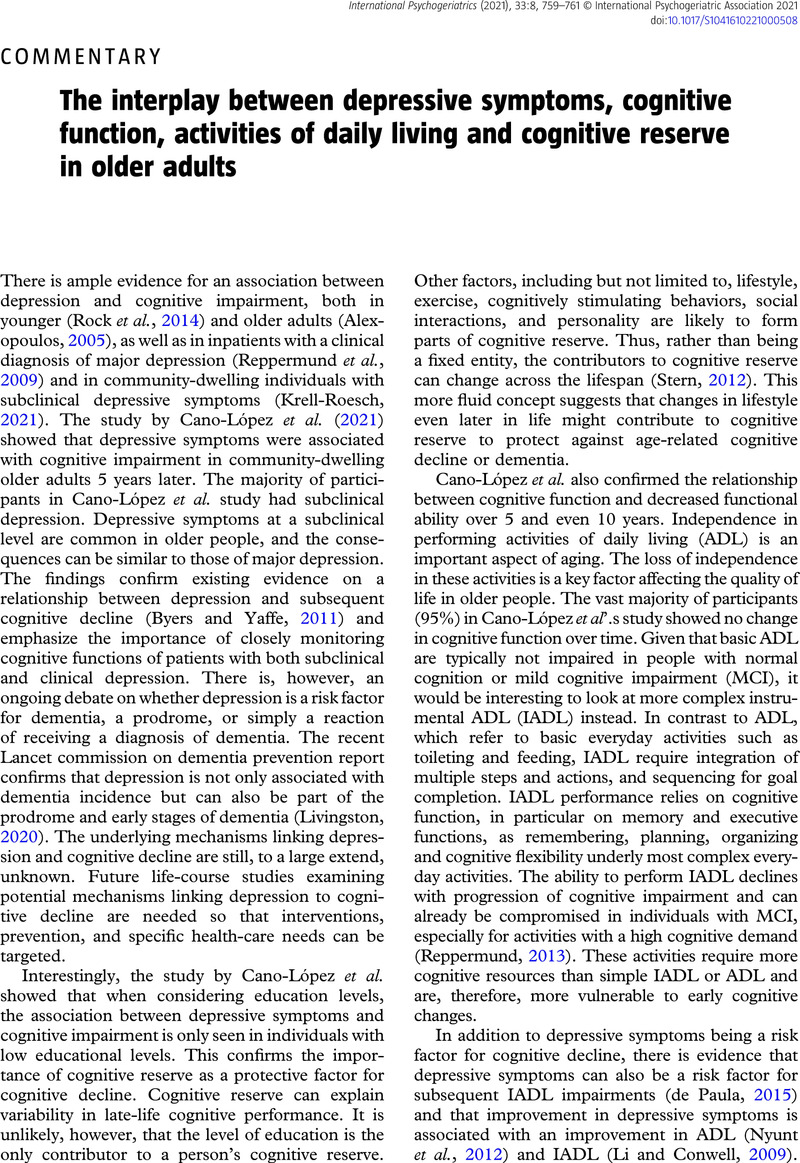Crossref Citations
This article has been cited by the following publications. This list is generated based on data provided by Crossref.
Haley, William E.
and
Elayoubi, Joanne
2023.
Longitudinal studies of older couples as a promising approach to understanding mechanisms of changes in cognition and mental health.
International Psychogeriatrics,
Vol. 35,
Issue. 10,
p.
545.



